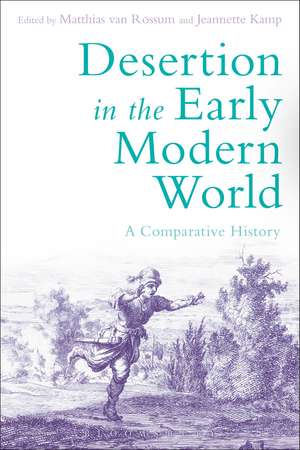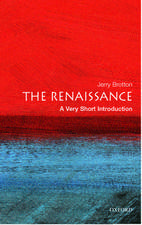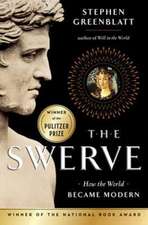Desertion in the Early Modern World: A Comparative History
Editat de Matthias van Rossum, Jeannette Kampen Limba Engleză Paperback – 24 feb 2016
| Toate formatele și edițiile | Preț | Express |
|---|---|---|
| Paperback (1) | 179.00 lei 22-36 zile | |
| Bloomsbury Publishing – 24 feb 2016 | 179.00 lei 22-36 zile | |
| Hardback (1) | 714.77 lei 43-57 zile | |
| Bloomsbury Publishing – 24 feb 2016 | 714.77 lei 43-57 zile |
Preț: 179.00 lei
Preț vechi: 207.74 lei
-14% Nou
Puncte Express: 269
Preț estimativ în valută:
34.26€ • 35.63$ • 28.28£
34.26€ • 35.63$ • 28.28£
Carte disponibilă
Livrare economică 24 martie-07 aprilie
Preluare comenzi: 021 569.72.76
Specificații
ISBN-13: 9781474215992
ISBN-10: 1474215998
Pagini: 224
Dimensiuni: 156 x 234 x 15 mm
Greutate: 0.36 kg
Editura: Bloomsbury Publishing
Colecția Bloomsbury Academic
Locul publicării:London, United Kingdom
ISBN-10: 1474215998
Pagini: 224
Dimensiuni: 156 x 234 x 15 mm
Greutate: 0.36 kg
Editura: Bloomsbury Publishing
Colecția Bloomsbury Academic
Locul publicării:London, United Kingdom
Caracteristici
Makes an important contribution to understanding the economies and societies of the early modern world and the 'Great Divergence'
Notă biografică
Matthias van Rossum is a researcher at the International Institute of Social History in Amsterdam and Lecturer in history at the University of Leiden, The Netherlands.Jeannette Kamp is a researcher at the University of Leiden, The Netherlands.
Cuprins
Part I: Desertion in Global HistoryIntroduction: Leaving Work Across the World (Matthias van Rossum, International Institute of Social History and Jeannette Kamp, Universiteit Leiden, The Netherlands)1. Runaways: A Global History (Alessandro Stanziani, Ecole des Hautes Etudes en Sciences Sociales, EHESS, Paris)2. Mass Exits: Who, Why, How? Marcel van der Linden (International Institute of Social History, The Netherlands)Part II: Europe3. Between Agency and Force: The Dynamics of Desertion in a Military Labour Market, Frankfurt am Main 1650-1800 (Jeannette Kamp)4. 'The privilege of using their legs': Leaving the Dutch Army in the Eighteenth Century(Pepijn Brandon, Universiteit van Amsterdam, The Netherlands)Part III: Atlantic and Maritime5. Desertion by Sailors, Slaves and Soldiers in the Dutch Atlantic, ca. 1600-1800 (Karwan Fatah-Black, Universiteit Leiden, The Netherlands)6. 'Working for the Devil': Desertion in the Eurasian Empire of the VOC (Matthias van Rossum)Part IV: Between Worlds7. Just Deserters: Runaway Slaves from the VOC Cape, ca. 1700-1800 (Kate Ekama, Universiteit Leiden, The Netherlands)8. From Contracts to Labour Camps? Desertion and Control in South Asia (Matthias van Rossum)Selected BibliographyIndex
Recenzii
In sum, this is a worthwhile contribution both for the wealth of detail its case studies provide and for the valuable framing of desertion, too often treated only as an aspect of military history, as a central part of labor history.
These essays will be extremely useful for maritime historians both because of their attention to seafaring workers, and because these workers are situated within broader questions relating to early modern labour ... [This is] the strength of this book's comparative approach.
This innovative collection of essays provides a fresh comparative history of desertion, through an original focus on the everyday resistance and circulation of ordinary people. Emerging from current debates in global history, and in particular new imperial histories of networks and connections, this book deserves a wide readership across social, maritime and cultural history
This volume offers a refreshingly new take on key themes of the global early modern era. Rather than seeing deserters as passive victims, the contributors stress the active role played by soldiers, sailors, slaves and journeymen in shaping their own lives by crossing a range of political, social and cultural boundaries. The experiences of deserters sheds light on the worlds they ran from as well as the hopes and visions they had for the future. With two incisive theoretical contributions by Alessandro Stanziani and Marcel van der Linden, both well-established and new young contributors cover a range of European and colonial societies, with a particular focus on the Dutch world.
"Desertion" from bonds of employment has been a signpost for the prevalence of coercion in market-mediated labour relations throughout the modern period. The need, demonstrably felt by large numbers of workers, to break free from such relations has been mirrored by the need, felt by employers the world over, to criminalize labour mobility. The commonness of the very concept of "desertion" indicates that the militarization of work has not been confined to army employment: the soldier and the worker inhabit a connected social world. The present volume combines global comparison, conceptual reflection and meticulous empirical studies on the early modern world in a broadly conceived effort to understand "desertion" as a pattern of social behaviour emerging from within labour markets. It gauges the structural import of a phenomenon that has usually been considered only in terms of local specificity or as a contingent side-effect of larger processes. It provides rich and new material for the inconclusive historical debate on that hard-dying oxymoron, the "free market".
These essays will be extremely useful for maritime historians both because of their attention to seafaring workers, and because these workers are situated within broader questions relating to early modern labour ... [This is] the strength of this book's comparative approach.
This innovative collection of essays provides a fresh comparative history of desertion, through an original focus on the everyday resistance and circulation of ordinary people. Emerging from current debates in global history, and in particular new imperial histories of networks and connections, this book deserves a wide readership across social, maritime and cultural history
This volume offers a refreshingly new take on key themes of the global early modern era. Rather than seeing deserters as passive victims, the contributors stress the active role played by soldiers, sailors, slaves and journeymen in shaping their own lives by crossing a range of political, social and cultural boundaries. The experiences of deserters sheds light on the worlds they ran from as well as the hopes and visions they had for the future. With two incisive theoretical contributions by Alessandro Stanziani and Marcel van der Linden, both well-established and new young contributors cover a range of European and colonial societies, with a particular focus on the Dutch world.
"Desertion" from bonds of employment has been a signpost for the prevalence of coercion in market-mediated labour relations throughout the modern period. The need, demonstrably felt by large numbers of workers, to break free from such relations has been mirrored by the need, felt by employers the world over, to criminalize labour mobility. The commonness of the very concept of "desertion" indicates that the militarization of work has not been confined to army employment: the soldier and the worker inhabit a connected social world. The present volume combines global comparison, conceptual reflection and meticulous empirical studies on the early modern world in a broadly conceived effort to understand "desertion" as a pattern of social behaviour emerging from within labour markets. It gauges the structural import of a phenomenon that has usually been considered only in terms of local specificity or as a contingent side-effect of larger processes. It provides rich and new material for the inconclusive historical debate on that hard-dying oxymoron, the "free market".











